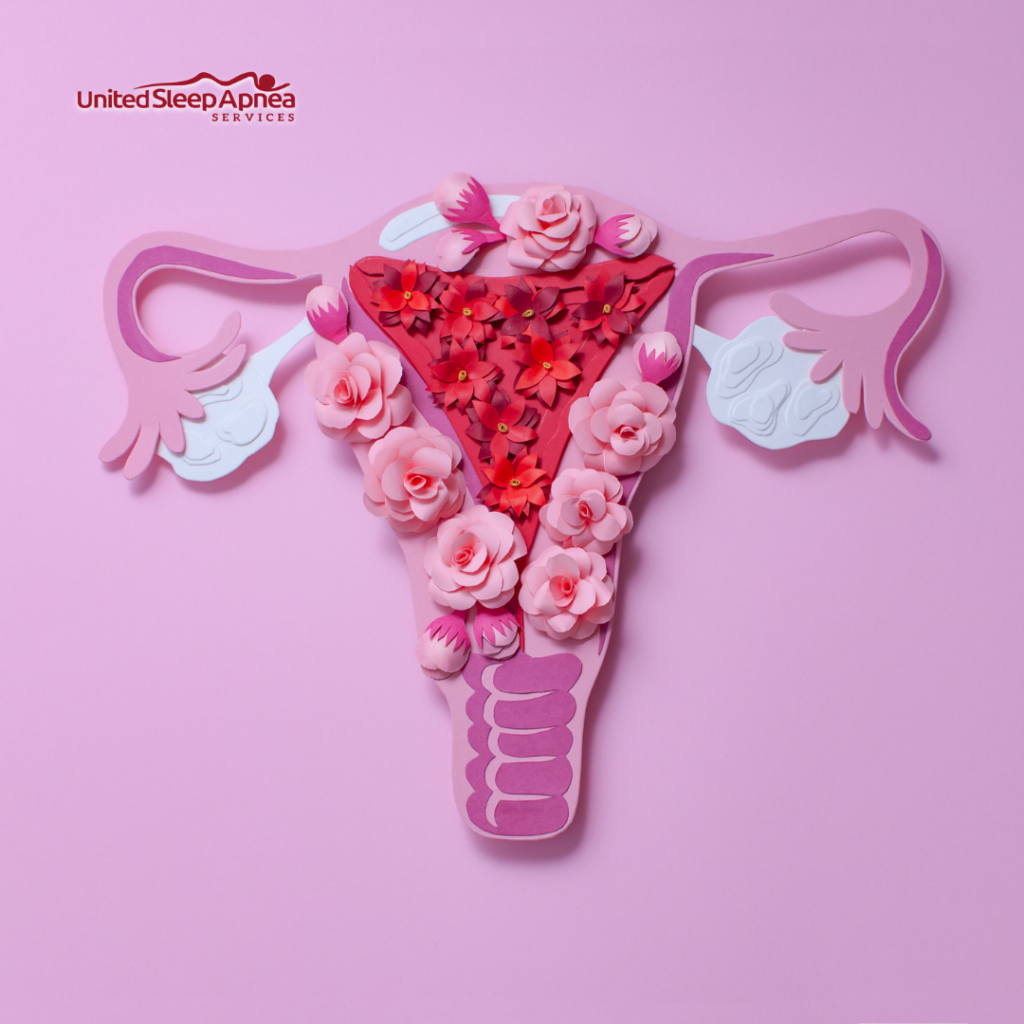Many of us have come across situations where females try to take birth control pills (preventing pregnancy). When combined with other bio compounds, progestin (related to the progesterone hormone) plays a vital role in these birth control pill formulations. An Everyday Health article reports some of the birth control measures, including pills (mini-pills), vaginal rings, and the skin patch that’s trending.
Most of us do not know that this progesterone hormone helps prevent pregnancy and keeps your pregnancy healthy if conceived. Also, the hormone aids in inducing sleep for those women who suffer from menstrual or menopause problems. How amazingly helpful, right?
Watch out! You may already have become one in every million women who have insomnia. Your root cause might be the progesterone hormone. Get it checked.
How important is Progesterone?
There lies a bundle of steroid hormones called Progestogens in the human body. Progesterone belongs to this group. The corpus luteum (a temporary endocrine gland) produces the progesterone hormone in a woman’s body after ovulation. This phase generally occurs in the second half of the menstrual cycle.
Male bodies produce only minimal levels of progesterone. Only female bodies exhibit major secretions. Hence, these hormones are also termed female sex hormones. The other names scientists use to refer to progesterone are Gesterol and Crinone.
This progesterone hormone is vital in regulating a female’s menstrual cycle and keeping the pregnancy healthy for the developing fetus. Hence, this hormone gains its attention mainly during the time of fertilization and the early stages of pregnancy.
Production of the Progesterone hormone
In females, during the menstrual cycle, in due course of ovulation (when eggs get released from the ovary), the ovarian follicle’s outer layer forms a lining-like structure called the corpus luteum. As corpus luteum starts only during the menstrual cycle’s ovulation phase each month, it’s called the temporary endocrine gland. This corpus luteum secretes the progesterone hormone around the 14th day of the menstrual cycle.
Although the corpus luteum in the ovaries contributes to major progesterone secretions, other parts of your human body produce the progesterone hormone in smaller quantities.

At times, the ovaries themselves may produce progesterone. The adrenal gland and during pregnancy, the placenta may secrete progesterone. And during the 8th to 12th weeks of pregnancy, the placenta dominates the production of the progesterone hormone, leaving behind the corpus luteum.
The Role of the Progesterone Hormone
The role of progesterone follows a cycle of events and majorly depends on the success or failure of the fertilization process.
Initially, once the corpus luteum secretes the progesterone hormone, it gears up the endometrium, the innermost layer of the uterus in females. The progesterone hormone helps the endometrium develop a highly thickened lining to get hold of the fertilized egg if the fertilization becomes successful.
If fertilization fails, the corpus luteum itself breaks, and thus the progesterone secretion lowers in the body. Menstruation initiates when your body senses lower concentrations of the progesterone hormone.

ARE YOU MISSING OUT ON THE MOST RESTORATIVE SLEEP OF YOUR LIFE?
Reduce your daytime fatigue with the latest diagnostic testing and physician services for improved health.
Our team of experts will listen to your concerns, guide you through the process, and answer all your questions.
During pregnancy, the progesterone hormone generally prohibits muscle contractions in the uterus and prevents the body from undergoing further ovulation. This rejects the uterus to accept more eggs. And, importantly, the hormone helps stimulate of blood vessels in the endometrium to help feed the developing fetus. The hormone also helps in preparing the breasts for milk production for breastfeeding.
During pregnancy, once the placenta forms, it produces progesterone, and the progesterone is produced by the corpus luteum. This drastically increases the progesterone levels in the body throughout pregnancy and helps in hindering further ovulation.
Functions of the Progesterone Hormone
Fertility and pregnancy become the prime roles of the progesterone hormone. During pregnancy, the progesterone hormone helps in:
- breast tissues development and milk production but prevents lactation
- the development of the fetus (blood vessels to feed)
- strengthening the pelvic wall muscles to prepare for labor
- increasing the ventilatory response to CO2
- acting as an immuno-steroid in the body
- modulating the sister hormone (estrogen) concentrations in the bloodstream
Importantly, the progesterone receptor (PR) helps regulate the expression of genes that govern the development, differentiation, and proliferation of the fetus.
A Daily Wellness health journal article lists the other roles of the progesterone hormone:
- The lowered risk of endometrial cancer, osteoporosis, and gallbladder diseases
- Improved brain functions and increased bone strength
- Reduced mood swings
- Maintenance of cardiovascular health
- Conversion of fat into energy
- Keeping the digestive tract healthy
- Promoting the immune system
- Increased sleep quality
In males, the smaller amounts of progesterone hormone help develop sperm.
Regulation of the Progesterone Hormone
The luteinizing hormone serves as the precursor of the progesterone hormone. The anterior pituitary gland produces the luteinizing hormone that helps in forming the corpus luteum and thus stimulating the corpus luteum to produce the progesterone hormone. The luteinizing hormone not only stimulates progesterone production but also stimulates the release of eggs during the second half of the menstrual cycle.
There lies another important regulator, the gonadotropin. During pregnancy, the fertilized egg develops into an embryo. The layer of cells that cover this embryo tends to produce chorionic gonadotropin. This hormone closely resembles the chemical structure of the luteinizing hormone, thus performing the luteinizing hormone’s role. Due to its structure, this gonadotropin binds to the receptors of the luteinizing hormone and carries out the stimulation of Progesterone.
Imbalance in Progesterone Production
For healthy women, progesterone levels increase just before menstruation. If not conceived, the progesterone levels decrease, leading to the menstrual cycle. When the bleeding begins, the progesterone levels become nil. After menstruation, the progesterone levels again rise.
Low Progesterone Levels
Females who exhibit lower progesterone levels than the nominal or recommended levels have higher chances of irregular menstrual cycles. This may arise due to insufficient progesterone levels that fail to prepare the uterus by creating a perfect environment for the fetus’s growth after fertilization

In special cases, pregnant females, even with lower progesterone levels, may experience a severe risk of pre-term delivery or miscarriage. The symptoms of low progesterone include irregular periods (sometimes with a skip), repeated miscarriage, spotting during pregnancy, abnormal uterine bleeding, and abdominal pain.
Indirectly, the lower progesterone levels lead to an abnormal increase in the sister hormone levels, the estrogen. This may develop problems with increased weight gain and gallbladder problems. Also, the individuals may experience a lower sex drive, further decreasing their chance of getting pregnant.
A 2018 Healthline article claims that the lower progesterone levels may sometimes lead to severe problems like fetal death, as the uterus cannot provide a growing environment with too low progesterone concentrations in the bloodstream.
A consistent lack of progesterone hormone levels in the bloodstream may lead to failure in releasing eggs, which may stimulate the onset of polycystic ovary syndrome in women.
High Progesterone Levels
Usually, slightly higher levels of the progesterone hormone do not cause any serious problems.
But when the concentrations are critically elevated, the women may have a greater probability of developing breast cancer.
Researchers have claimed that higher progesterone levels may partly get associated with premenstrual syndrome (PMS). The symptoms of PMS include increased tenderness in the breasts, mood swings, and a continuous bloated feeling.
How are Sleep and Women Linked?
A National Sleep Foundation article has dived deep into understanding how women and women’s biologics associate with sleep. The National Sleep Foundation (NSF) also has a surprising estimate that 18 million Americans suffer from sleep apnea (a sleep breathing disorder). This includes one in four women above the age of 65. Agreeing to this, a research study also revealed that sleep deprivation (insomnia) occurred more frequently (about 1.5 to 2 times) in women than in men.
The NSF article presents the insights of an NSF American survey that women have more likeness towards staying awake and find it increasingly difficult to fall asleep than men. Also, the survey finds that women experience more daytime sleepiness than men during a work-week. This sleep deprivation in women has proven consequences of increased accidents, weight gain, focus or concentration-related problems, frequent illnesses, and as a whole, exhibit poor performance in education or at work.
Since several women face such serious problems with sleep loss, it has become the need of the hour to understand how sleep and women are closely related. In general, women undergo several unique biological phases throughout their lifetime, including menstrual cycles, pregnancy, and menopause. The hormonal level changes constitute these different phases and hence has an adverse effect on their sleep.
How are Sleep and the Progesterone Hormone Linked?
A 2017 Daily Wellness article puts forth the insights of a study published in Current Medical Chemistry that the progesterone hormone exhibits a sleep-inducing effect and acts as a respiratory stimulant. This way, the hormones regulate your breath and prevent individuals from getting affected by sleep apnea (a breathing problem during sleep).
A WebMD featured story well explains how the changes in the progesterone hormone levels across the various stages (menstrual cycle, pregnancy, and menopause) affect a woman’s sleep quality.
- Menstrual Cycle: During menstrual cycles, young women may experience a casual rise or decrease in progesterone production. This may affect their sleep during menstruation, and somehow retain proper sleep after menstruation. But, sometimes, for females who experience consistent sleep deprivation, this may be a symptom of the premenstrual syndrome that they may already suffer from.
- Pregnancy: Most pregnant women may experience sleepless nights due to imbalanced progesterone levels. When this sleeplessness persists, it may lead to depression in the postpartum period and may greatly affect the health of both the mother and the baby.
- Menopause: Progesterone hormone, which usually protects individuals from sleep apnea, may fail to do its job during the menopausal phase or the menopausal span of years. Perimenopausal women may develop hot flashes and irritations, often owing to sleep deprivation.
A 2010 research study published in the International Journal of Endocrinology studied the relationship between sleep, hormones, and the circadian rhythm throughout the menstrual cycle of healthy women. In addition to several pieces of research on the significant association between the sleep-wake process and hormonal secretions, this study found that this association gets further regulated by the menstrual cycle in women.

ARE YOU OR YOUR LOVED ONES AFFECTED BY SLEEP APNEA?
Our process is designed using a patient-centered, holistic curative model that focuses on lowering costs while improving outcomes.
We serve veterans, minorities, families, and those who can’t get tests done at other facilities
The research study also found that the progesterone hormone, apart from regulating the sleep-wake cycle directly, affects sleep quality by indirect means as well. This involves increased body temperature, especially during the luteinizing phase for sleep-deprived subjects. The study also confirms that the progesterone hormone primarily affects the REM stage of the sleep cycle during the luteinizing phase of the affected individual’s menstrual cycle.
Another research published in the Journal of Clinical Endocrinology & Metabolism reveals that progesterone acts as a psychological regulator of sleep and restores the subjects from disrupted sleep to normal sleep.
Conclusion
If you’re among those women who face sleep debts during your menstrual cycle, then your sleep loss might have arisen due to this magical hormone, progesterone. If you keep the sleep debts unactionable, you might end up experiencing the most common consequences of sleeping disorders, including Diabetes and Obesity.
If you don’t want to add more problems to your unhealthy sleep life, kindly get your sleep checked right away.
Remember, the sleep scale test may also help you find whether your sleep loss has any other root cause problems or hormonal imbalances other than the progesterone hormone.


